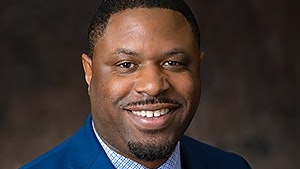In a recent ruling, a Texas judge determined that a school's hair length policies did not violate the CROWN Act, a law aimed at prohibiting discrimination based on hairstyle and texture. This decision has sparked controversy and raised important questions about the interpretation and enforcement of anti-discrimination laws, particularly in the context of cultural and racial identity. While the ruling may have legal implications, its broader societal impact underscores the ongoing struggle against systemic racism and the need for greater awareness, empathy, and advocacy for diversity and inclusion in all aspects of society.
 Dr. Antonio L. Ellis
Dr. Antonio L. Ellis
Furthermore, the ruling raises concerns about the interpretation and application of anti-discrimination laws, such as the CROWN Act. While these laws are intended to protect individuals from discrimination based on race-based hairstyles, their effectiveness hinges on the interpretation and enforcement by judges and legal authorities. In cases where the spirit of the law is disregarded or misinterpreted, marginalized communities may continue to face systemic barriers and injustices. In addition, the ruling underscores the need for comprehensive education and awareness initiatives to combat racial bias and promote cultural competence within educational institutions. Schools play a critical role in shaping attitudes and perceptions about diversity and inclusion, and it is incumbent upon educators and administrators to foster environments that celebrate and affirm the diverse identities and experiences of all students.
 Dr. Phelton C. Moss
Dr. Phelton C. Moss
By centering the narratives of individuals who have been marginalized and silenced, we can raise awareness, build solidarity, and galvanize collective action to challenge systemic inequities and promote social change. The ruling underscores the need for ongoing dialogue and collaboration between legal experts, community leaders, and advocacy organizations to develop strategies and solutions for combating hair discrimination and advancing racial justice. By leveraging collective expertise and resources, we can develop innovative approaches to address systemic inequalities and create more inclusive and equitable societies.
While the ruling regarding the school's hair length policies may have legal implications, its broader societal impact highlights the urgent need for systemic change and cultural transformation. By challenging discriminatory practices, advocating for legislative reforms, and promoting dialogue and awareness, we can work together to create a more just, equitable, and inclusive world where all individuals are valued, respected, and empowered to embrace their unique identities and experiences.
The fight against discrimination and systemic racism is far from over. Moving forward, we must redouble our efforts to promote diversity, inclusion, and cultural acceptance in all aspects of our education system. Creating a more equitable and inclusive education system requires sustained advocacy, education, and solidarity. As we confront this latest setback, let it serve as a rallying cry for renewed determination and action toward a future where every student is valued and respected, regardless of appearance or cultural background.
Dr. Antonio L. Ellis is a senior professorial lecturer and director of the Summer Institute on Education Equity and Justice in the School of Education at American University.
Dr. Phelton C. Moss is a senior professorial lecturer and acting director of the education policy and leadership M.Ed. program in the School of Education at American University. He is also a fellow for education innovation at the National Association for the Advancement of Colored People (NAACP).















